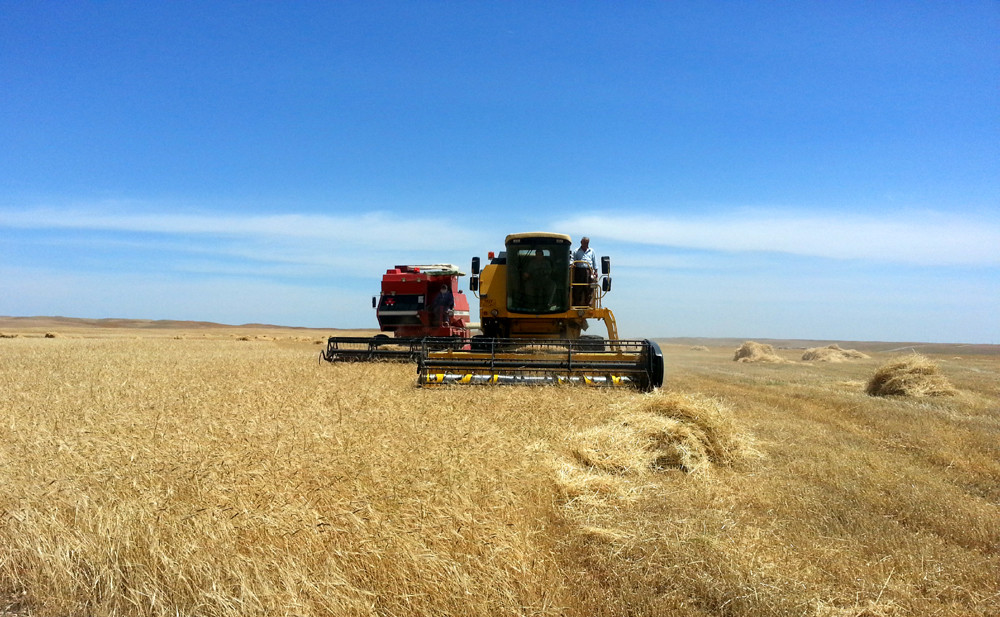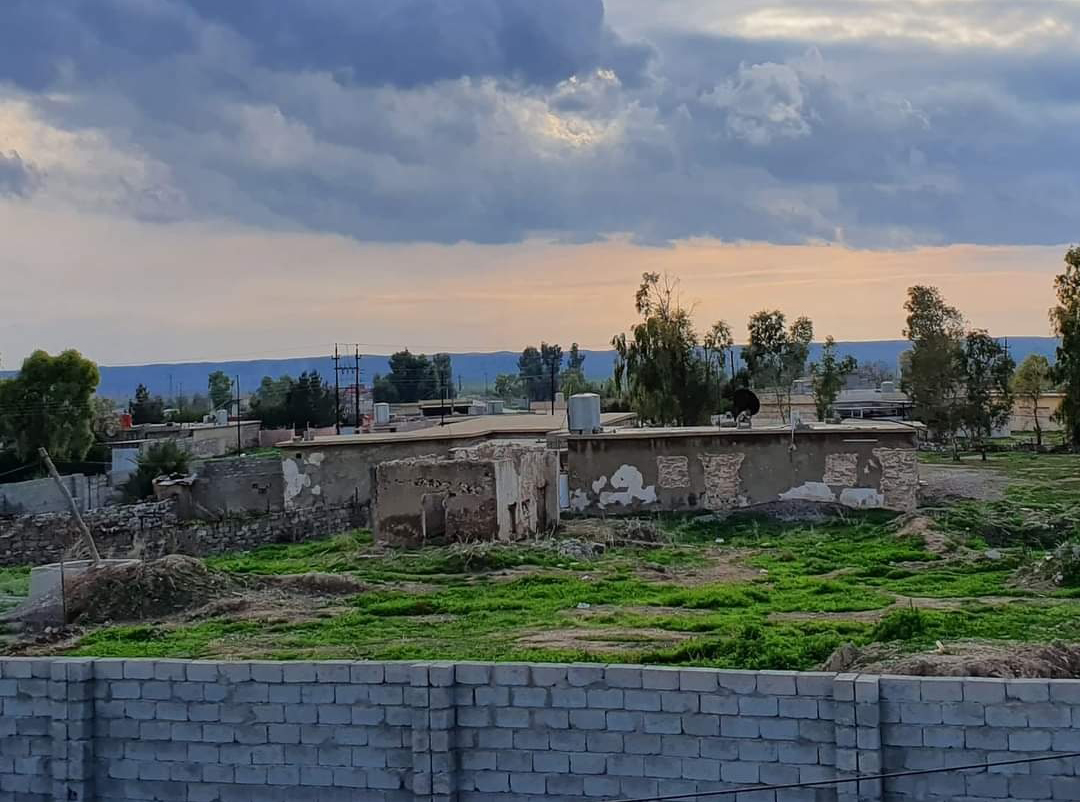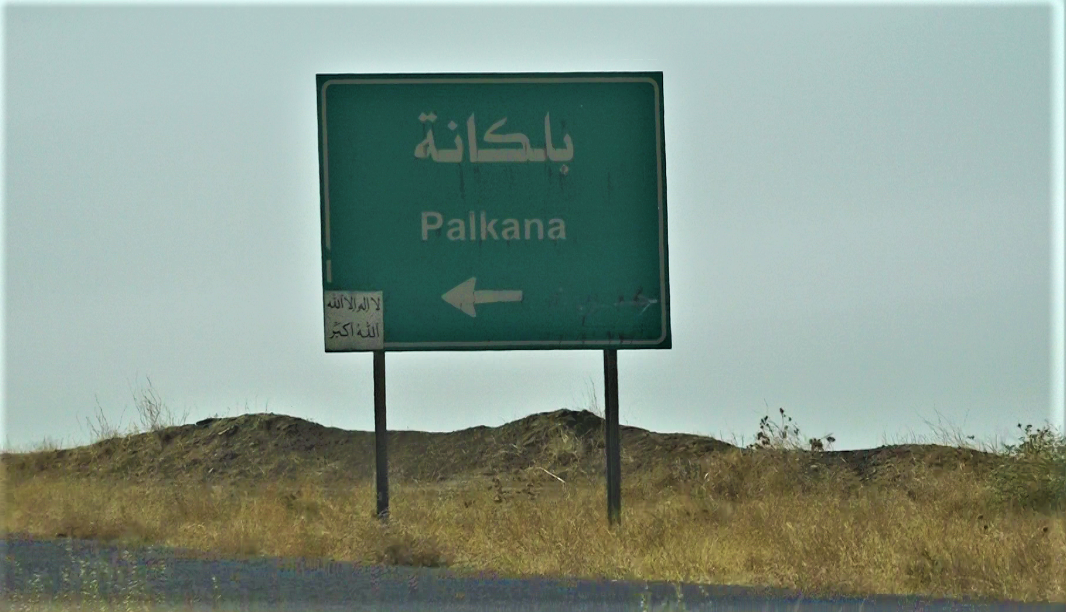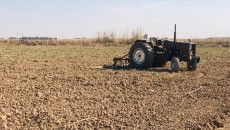The Iraqi army has banned the start of the harvest of wheat and barley in a village of the northern, oil-rich city of Kirkuk, on the grounds of preventing tensions between Kurdish and Arab farmers, although the dispute over the ownership of agricultural land exists for decades.
According to KirkukNow, since April 21, 2023, the Iraqi army commanders have warned residents and farmers in Palkana village of Sargaran sub-district, northwest Kirkuk, the harvest of wheat and barley is not allowed in order to avoid confrontation between Arab and Kurdish parties whom both claim ownership of the farmlands.
“The army battalion commander told us we could not harvest, and we had to stop all agricultural activities,” Mohammed Amin, who introduced himself as a representative of Palkana farmers, told KirkukNow.
Palkana, one of the 42 villages in Sargaran sub-district of Dubiz district, is home for 25 families and covers an area of more than 60,000 acres of fertile farmland beside oil wells.
"The army does not have any official letter banning agricultural work. When we asked for a letter, they only said they had been notified from higher positions," Amin said.
Few days ago, a number of farmers tried to harvest their crops but the army seized three tractors and a plough.

Palkana is administratively part of Kirkuk province, but the security issue is with the Provincial Operations Command of Salahaddin, a province, southwest of Kirkuk.
KirkukNow tried to get a statement from the army in the area more than once, but the attempts were in vain.
"We have informed the Kurdish side and the Iraqi Justice Minister (Khalid Shuani) has spoken to the Iraqi Defense Minister and we are waiting to see what can be done for us because there are only eight Arab families in the area," said Amin.
While the Arab, Kurdish and Turkmen parties are beginning a new phase of political dispute on Article 140 of the constitution; Arab and Kurdish farmers are fighting over the ownership of agricultural land and are leading the situation to ethnic war.
Tensions in Kirkuk villages and some other disputed territories have been ongoing for years since the political warfare and government measures failed to normalize the situation, most recently the efforts of Mohammed Shia Sudani's cabinet to revive the committee for implementation of Article 140 of the Iraqi constitution, the only constitutional way to resolve the tensions in the disputed territories.

Palkana and several surrounding villages have been the subject of tensions and disputes between people and officials over the ownership of the area and its agricultural land. Residents of about 35 villages in Sargaran sub-district have been living in unrest for several years.
Abdulmuttalib Abdulmajid, acting mayor of Sargaran, told KirkukNow that the fight started between two young villagers, then escalated and the army got the situation under control.
According to two security sources, the fighting was caused by an argument between a number of young villagers, which later led to a fight over pasture and livestock, three people were injured with pipes and sticks.
"The situation in the village is very calm compared to before, there is no tension, we have sat down with both sides (Kurdish and Arab farmers) to admit themselves and not arise other problems, because this cannot be solved,” the mayor said.
Agricultural land is one of the most complicated issues in Kirkuk province and other disputed areas; The dispute dates back to the Ba'ath Party, but the Iraqi parliament and successive governments have not reached a final solution which depends on the implementation of Article 140 of the Iraqi constitution, a roadmap for the disputed territories between Baghdad and Erbil through three stages of normalization, census and referendum.
KirkukNow tried to speak to the Kirkuki lawmakers of the Iraqi parliament yet despite promising to comment, they did not respond.
"What has been done for the situation in the village and the area is only pain relief and nothing else, while this problem should be eliminated and determined from Baghdad, what we can do and have to do is calming the situation," the acting mayor said.
Kirkuk province is one of the richest and most fertile areas in Iraq for grain production. According to agricultural statistics, wheat production this year reached 800,000 tons, three times last year's production.






